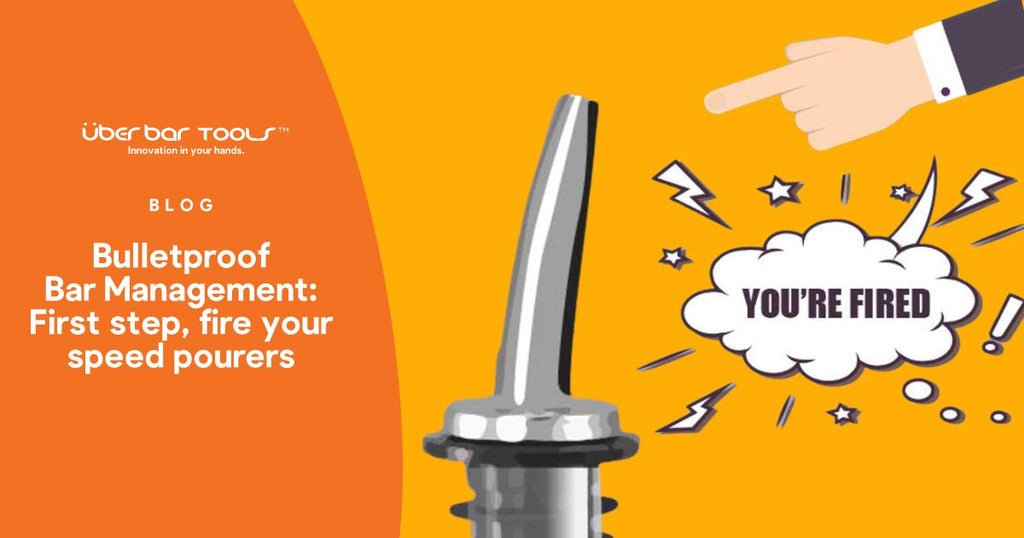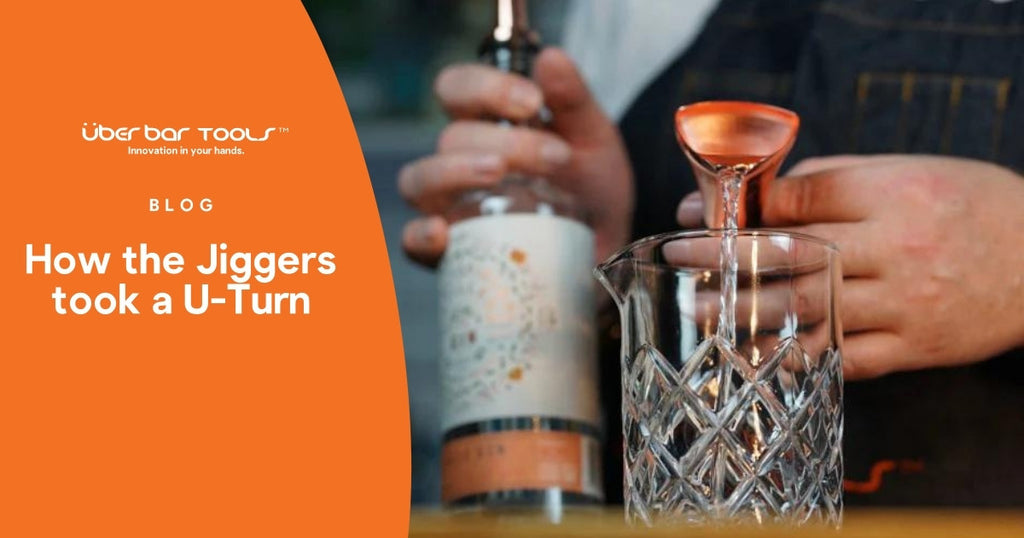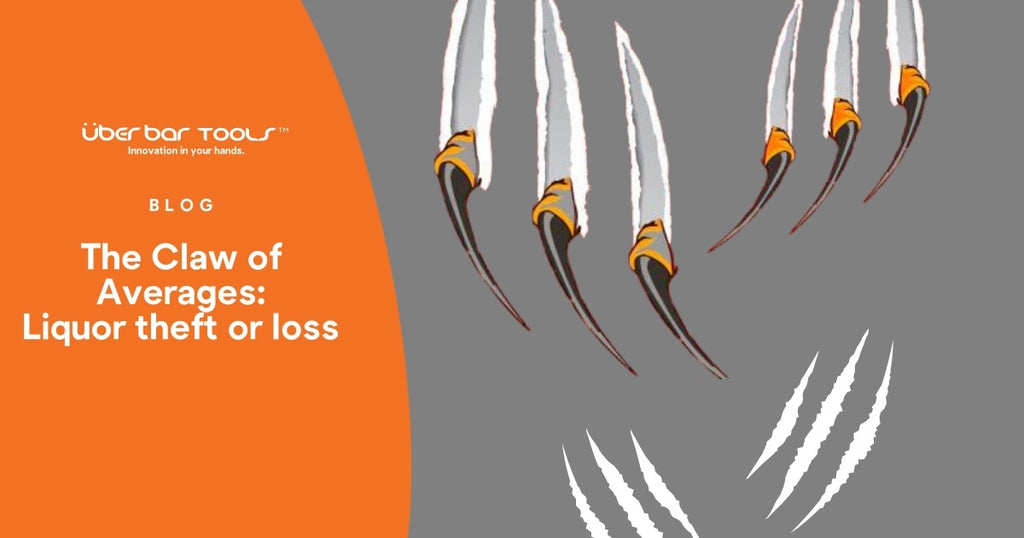News
Looking to elevate your cocktail game, streamline your bar operations, or simply unlock the secrets of the perfect pour? You've come to the right place!
At Überbartools™, we're passionate about all things bar-related, and we're dedicated to sharing our knowledge and insights with you.

Bulletproof Bar Management: First step, fire your speed pourers
Are traditional speed pourers hurting your bar's profitability? Learn the hidden drawbacks of traditional pourers and discover a revolutionary solution for efficient and cost-effective pouring.

How the Jiggers took a U-Turn
Not all jiggers are made equal when it comes to accuracy. Check out our range of jiggers to reduce waste, increase profit and improve efficiency.

The Claw of Averages - Liquor Theft or Loss

Bartender Speed and Efficiency

Kindness, Patience and Respect: The Secret to Hospitality Success

The Wheel of Fortune

The Key to Big Bar Business: Thinking Small

The one question you should ask for 2019? How long should your customer wait for a drink?
Like many people getting back down to business this January, you're probably looking at the how, what, why, when of the year.
But there's one simple question, that may help you answer a lot of those other questions....
How long should a guest wait for their drink?

Five simple ways to make your bar sustainable
One in three consumers now prefer eco-friendly options. And the hospitality industry is no stranger to this demand, with many bars becoming more eco-friendly. Here are our top sustainability tips for bars.
TOO LITTLE TOO MUCH!
Add Value...Avoid Discounting
A competitive marketplace gives rise to the feeling one needs to discount to generate, to maintain or increase sales. But when you’re a destination retail or hospitality business, then there's smarter ways to go before going down discount alley.


